23 Everyday Foods To Boost Your Nutrition
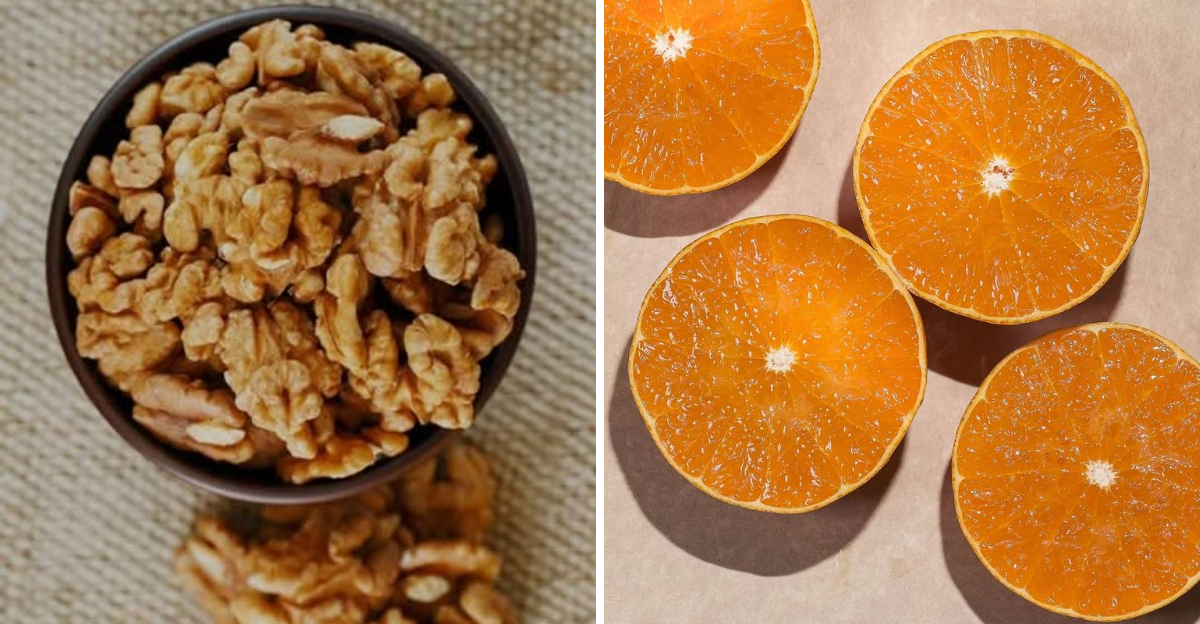
Discover a world of nourishment with these 23 everyday foods, each handpicked to enrich your diet and boost your overall health. From fruits and vegetables to grains and proteins, these foods are packed with essential nutrients. Embrace them in your daily meals to experience a profound impact on your well-being and energy levels.
1. Spinach
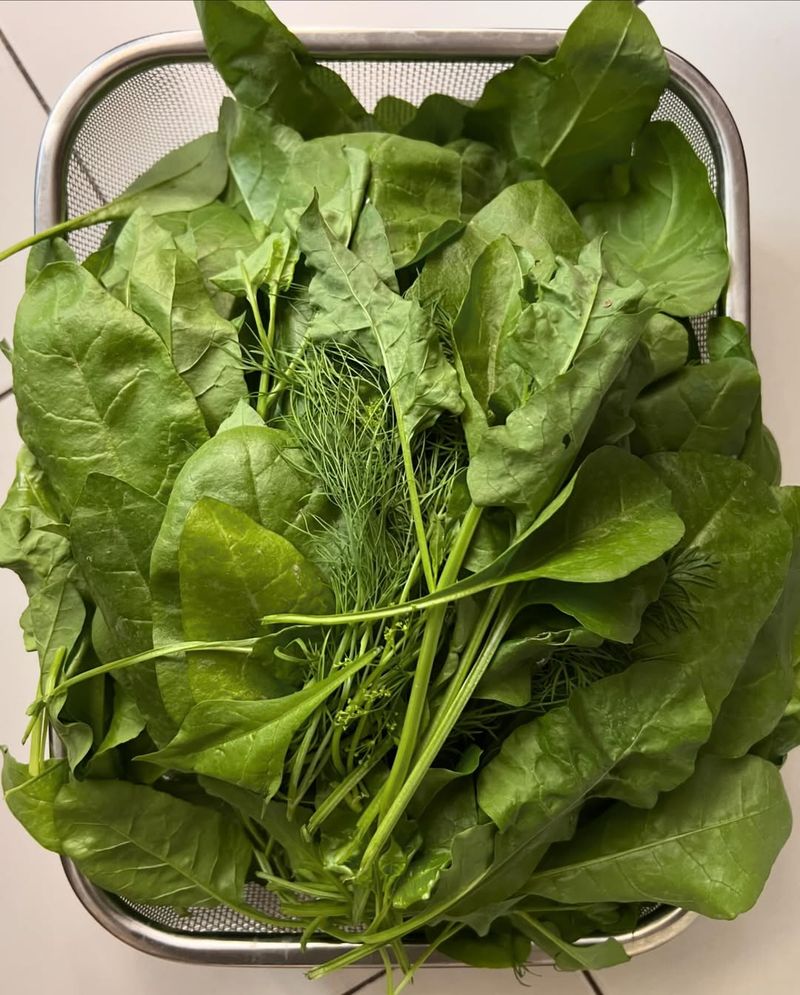
Spinach, a leafy green vegetable, is a powerhouse of essential nutrients. Rich in iron, it supports blood health and energy levels, making it a staple for many diets. Packed with vitamins A, C, and K, spinach boosts immunity and bone strength.
It’s incredibly versatile, fitting into salads, smoothies, and cooked dishes. The mild flavor allows it to blend seamlessly with other ingredients. For optimal nutrition, consider incorporating raw spinach into your meals.
Whether you enjoy it as a salad or a side dish, spinach offers a myriad of health benefits in every bite.
2. Blueberries
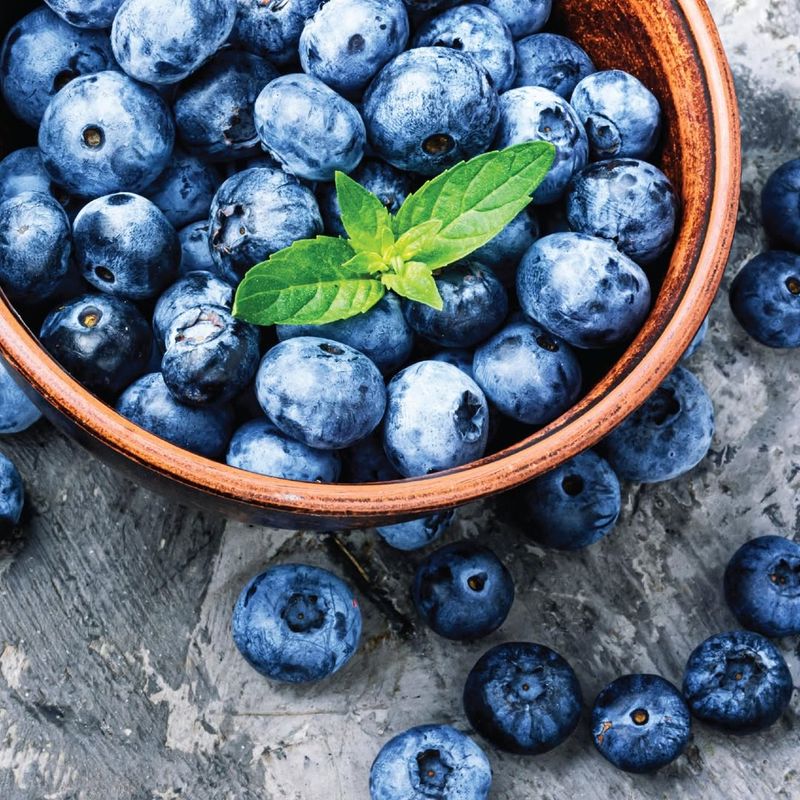
Blueberries are small, yet mighty fruits packed with antioxidants and vitamins. Known for their sweet and tangy flavor, they are an excellent addition to any meal or snack. Regular consumption can enhance brain function and heart health, making them a favorite in health-conscious diets.
These berries are rich in vitamin C and fiber, promoting digestive health and boosting immunity. Enjoy them fresh, in smoothies, or as a topping for yogurt and cereals to make the most of their nutritional power.
Their convenience and taste make blueberries a delightful choice.
3. Almonds
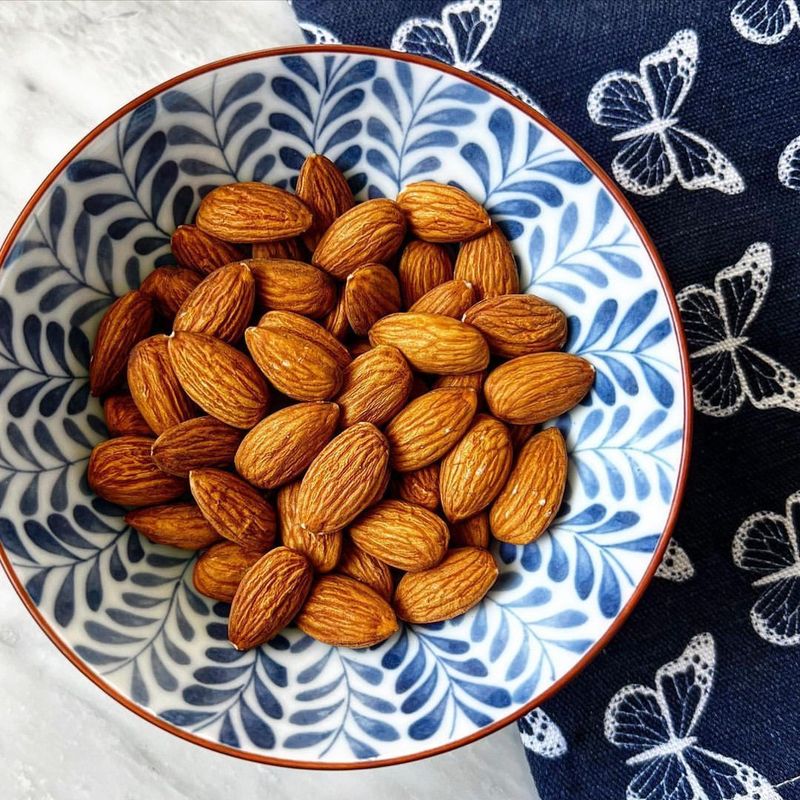
Almonds are nutrient-dense nuts that provide a perfect balance of healthy fats, protein, and fiber. They contribute to heart health by lowering cholesterol levels and promoting weight management due to their satiating nature.
Packed with vitamin E, almonds support skin health and act as a natural antioxidant. Their versatility allows them to be enjoyed raw, roasted, or as almond butter. Incorporating almonds into your diet can enhance meal satisfaction and nutritional intake.
Whether as a snack or part of a dish, almonds add a crunchy, nutritious element to your diet.
4. Salmon

Salmon is a rich source of omega-3 fatty acids, essential for brain and heart health. This flavorful fish is also high in protein and B vitamins, which support energy metabolism and overall vitality.
Choosing wild-caught salmon can provide higher nutrient levels. It’s easy to include in your diet, whether baked, grilled, or in sushi. Adding salmon to your meals can significantly boost your intake of healthy fats.
Its delicious taste, combined with its impressive nutritional profile, makes salmon a favored choice for boosting well-being.
5. Quinoa
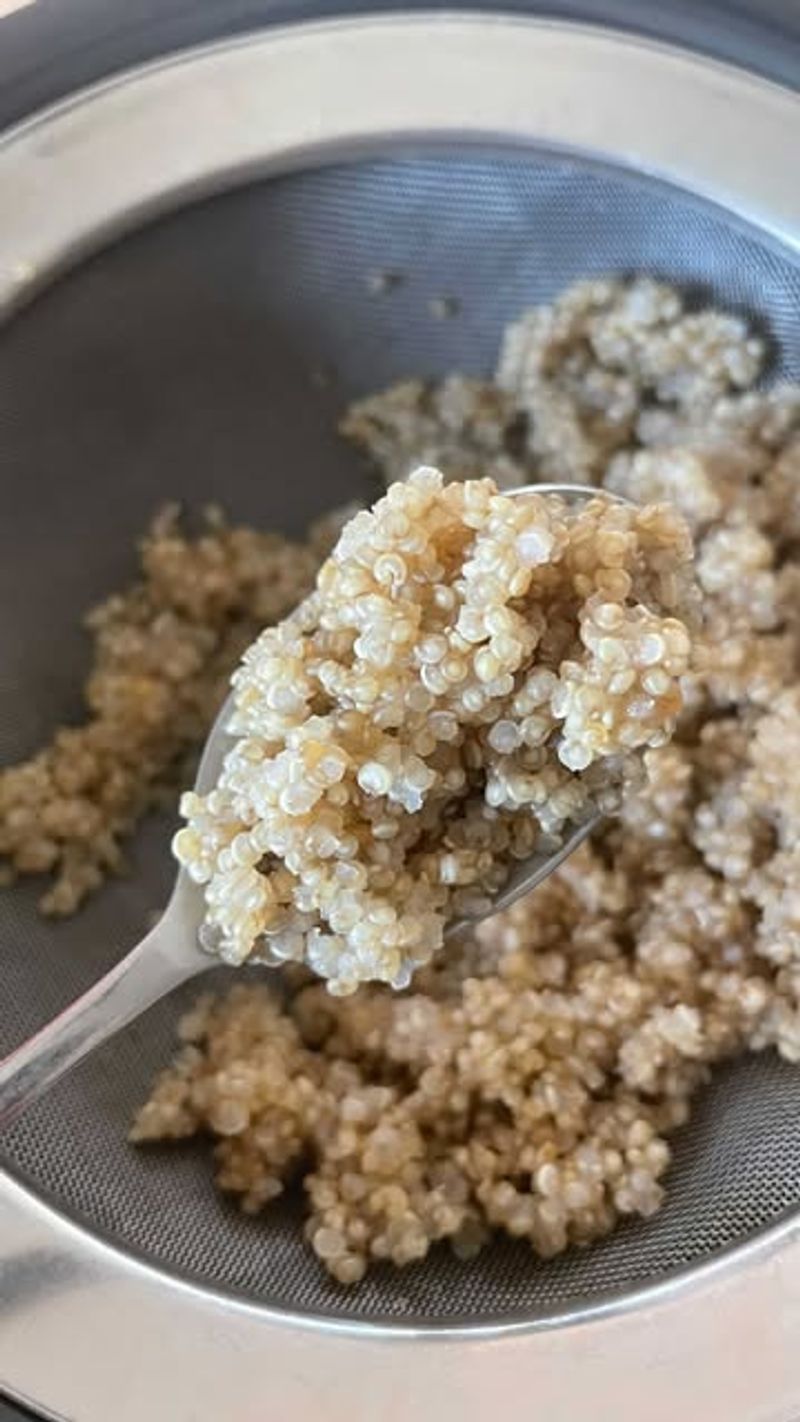
Quinoa, a gluten-free grain, boasts all nine essential amino acids, making it a complete protein source. It’s rich in fiber, aiding digestion and promoting satiety. Quinoa is also high in magnesium, supporting muscle function and bone health.
Its mild flavor and fluffy texture make it an adaptable addition to salads, bowls, or as a rice substitute. Cooking quinoa is simple, making it a convenient option for quick meals.
Embrace quinoa in your diet to enjoy its nutritional benefits and delightful texture in every serving.
6. Greek Yogurt

Greek yogurt stands out for its thick, creamy texture and high protein content. It’s an excellent source of calcium, benefiting bone health and muscle function. The probiotics in Greek yogurt support digestive health and enhance gut flora.
This versatile dairy product can be enjoyed plain, with fruit, or as a base for creamy dips and smoothies. Opt for plain, unsweetened varieties to avoid added sugars while maximizing health benefits.
Incorporating Greek yogurt into your diet provides a satisfying, nutrient-rich option to support your wellness goals.
7. Avocado
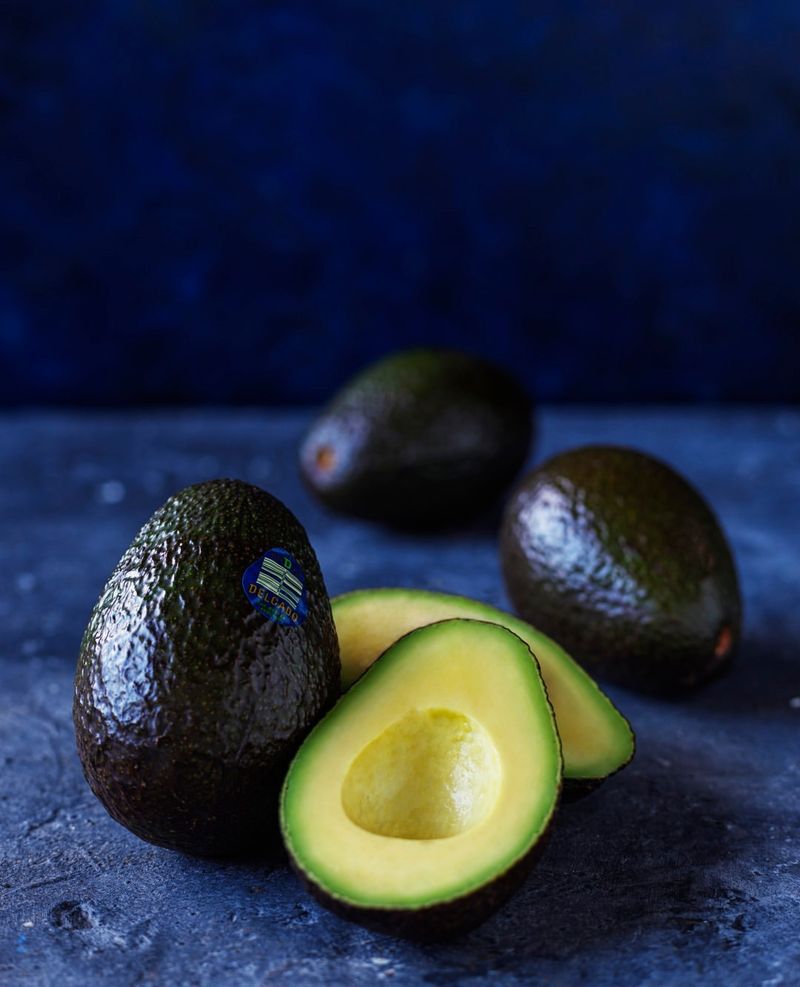
Avocados are creamy fruits known for their healthy monounsaturated fats, which support heart health and weight management. They’re rich in potassium and vitamin E, enhancing muscle function and skin health.
The versatility of avocado allows it to be used in savory dishes, smoothies, or even as a substitute for butter in baking. Its smooth texture and mild flavor blend seamlessly with various ingredients.
Including avocado in your meals can elevate their nutritional content and provide a luscious, satisfying element to your diet.
8. Oats
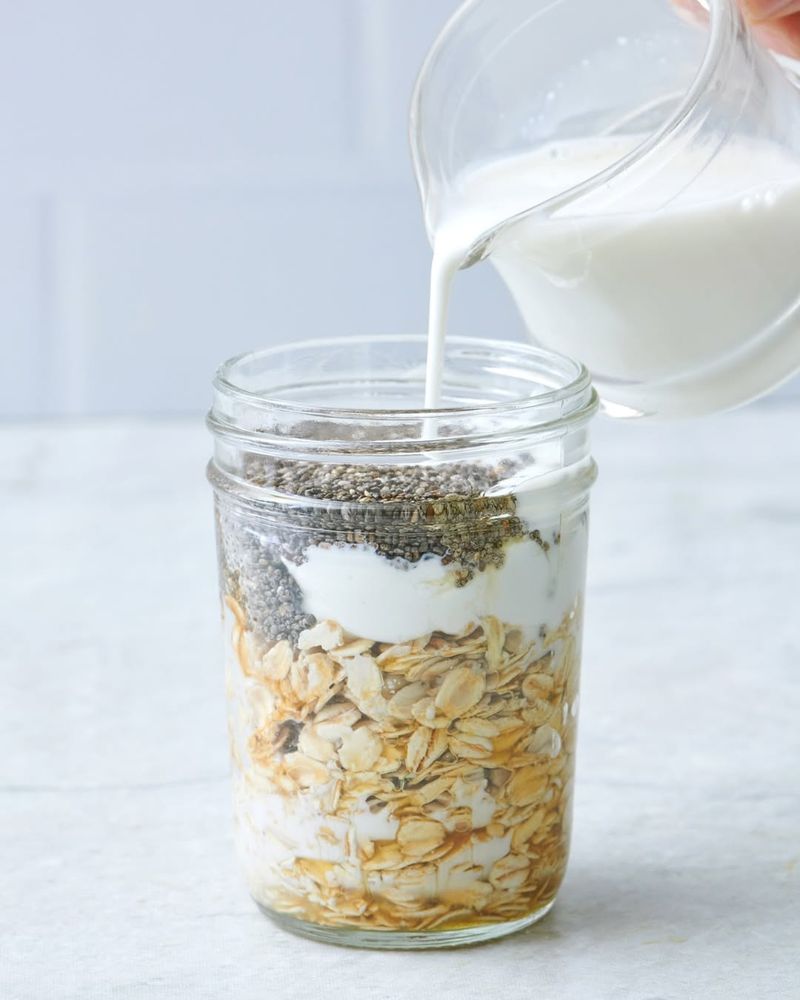
Oats are a whole grain celebrated for their high fiber content, particularly beta-glucan, which aids in cholesterol reduction and heart health. They’re also rich in vitamins and minerals, supporting energy levels and overall vitality.
Oats are incredibly versatile, serving as a base for breakfast cereals, granola bars, and baked goods. Their mild flavor allows them to blend well with a variety of toppings.
Starting your day with oats can provide a hearty, nutritious breakfast, keeping you full and energized for hours.
9. Broccoli
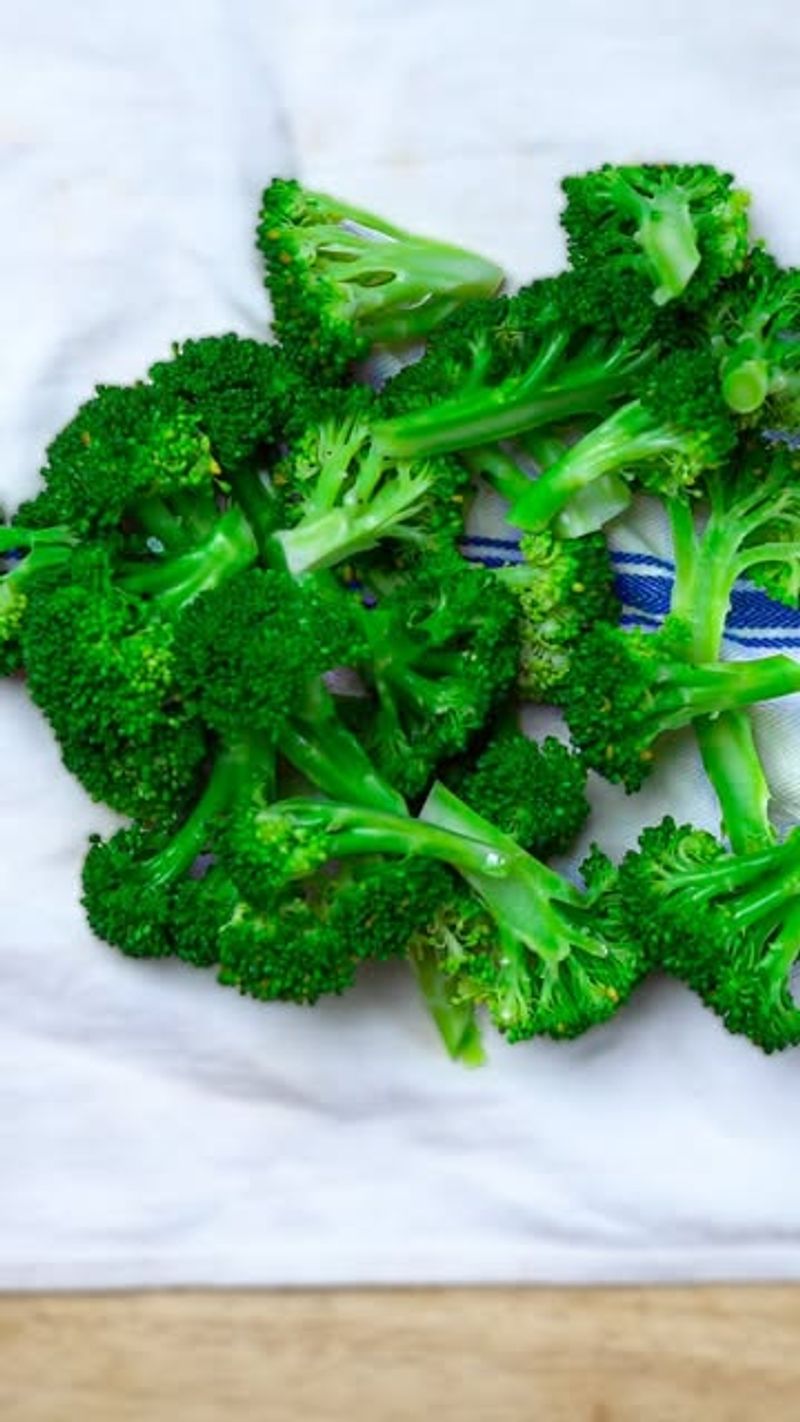
Broccoli is a cruciferous vegetable packed with vitamins C and K, fiber, and antioxidants. These nutrients support immune health, bone strength, and inflammation reduction. Its unique flavor and crunchy texture make it a versatile ingredient in various dishes.
Whether steamed, roasted, or raw, broccoli retains its nutritional value and can be easily incorporated into meals. Its health benefits and delightful taste make it a staple in many diets.
Adding broccoli to your meals can enhance their nutritional profile and provide a flavorful, healthful component.
10. Eggs

Eggs are a versatile protein source, rich in essential nutrients like vitamin D, B12, and selenium. They support muscle health, energy production, and immune function. Eggs are also high in choline, important for brain health.
From breakfast to dinner, eggs can be cooked in numerous ways, from scrambled to poached. Their affordability and nutritional density make them a valuable addition to any diet.
Including eggs in your meals provides a simple, satisfying way to enrich your diet with high-quality protein.
11. Sweet Potatoes
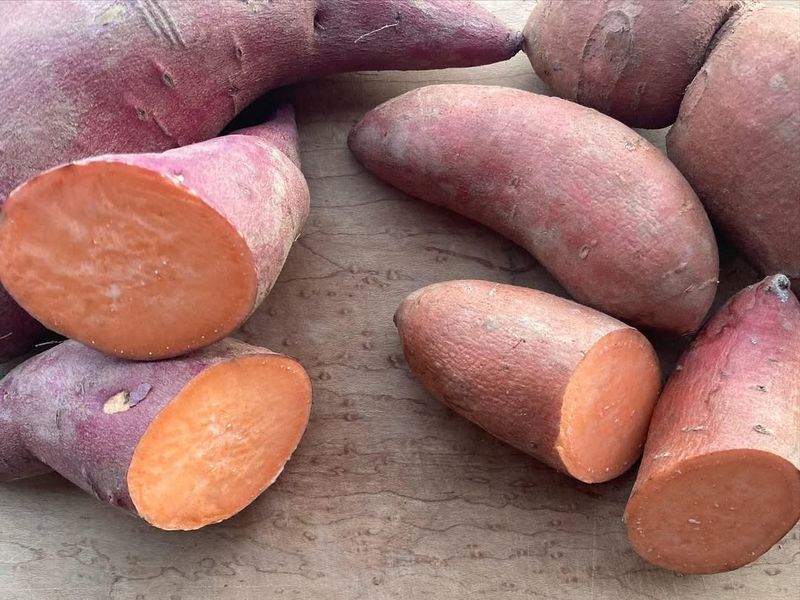
Sweet potatoes are a vibrant root vegetable packed with beta-carotene, a precursor to vitamin A, which supports vision and immune health. They’re also rich in fiber, aiding digestion and promoting satiety.
Whether baked, roasted, or mashed, sweet potatoes offer a naturally sweet flavor that pairs well with a variety of dishes. Their versatility makes them an easy addition to any meal.
Adding sweet potatoes to your diet provides a nutritious, flavorful option, full of vitamins and minerals essential for well-being.
12. Lentils
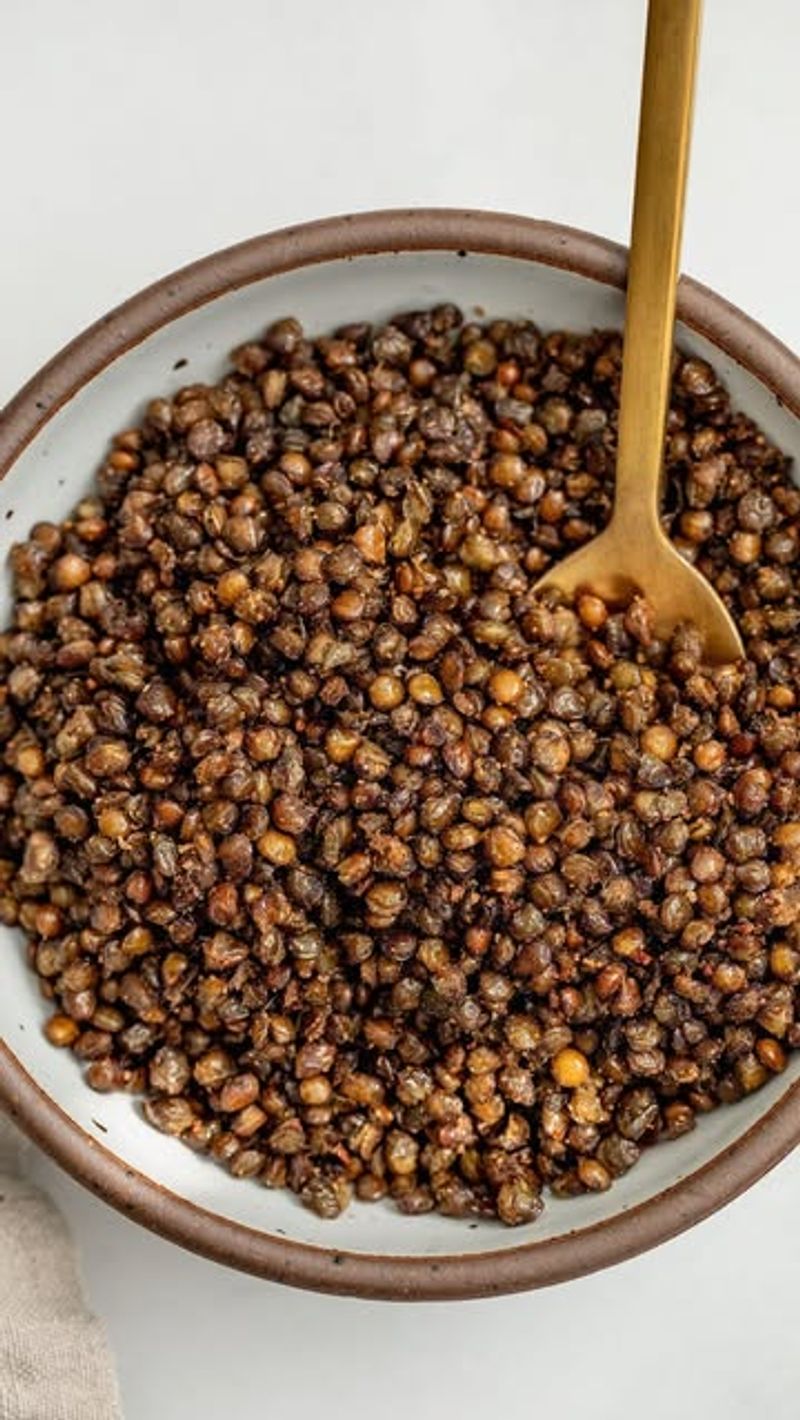
Lentils are legumes rich in protein, fiber, and essential nutrients like iron and folate. They support heart health and improve digestion, making them a popular choice for plant-based diets.
Lentils come in various colors and can be used in soups, stews, or salads. Their mild, earthy flavor complements a range of spices and ingredients. Cooking lentils is quick, making them a convenient, nutritious option.
Incorporating lentils into your meals offers a hearty, nutrient-rich alternative to boost your protein intake and overall nutrition.
13. Walnuts
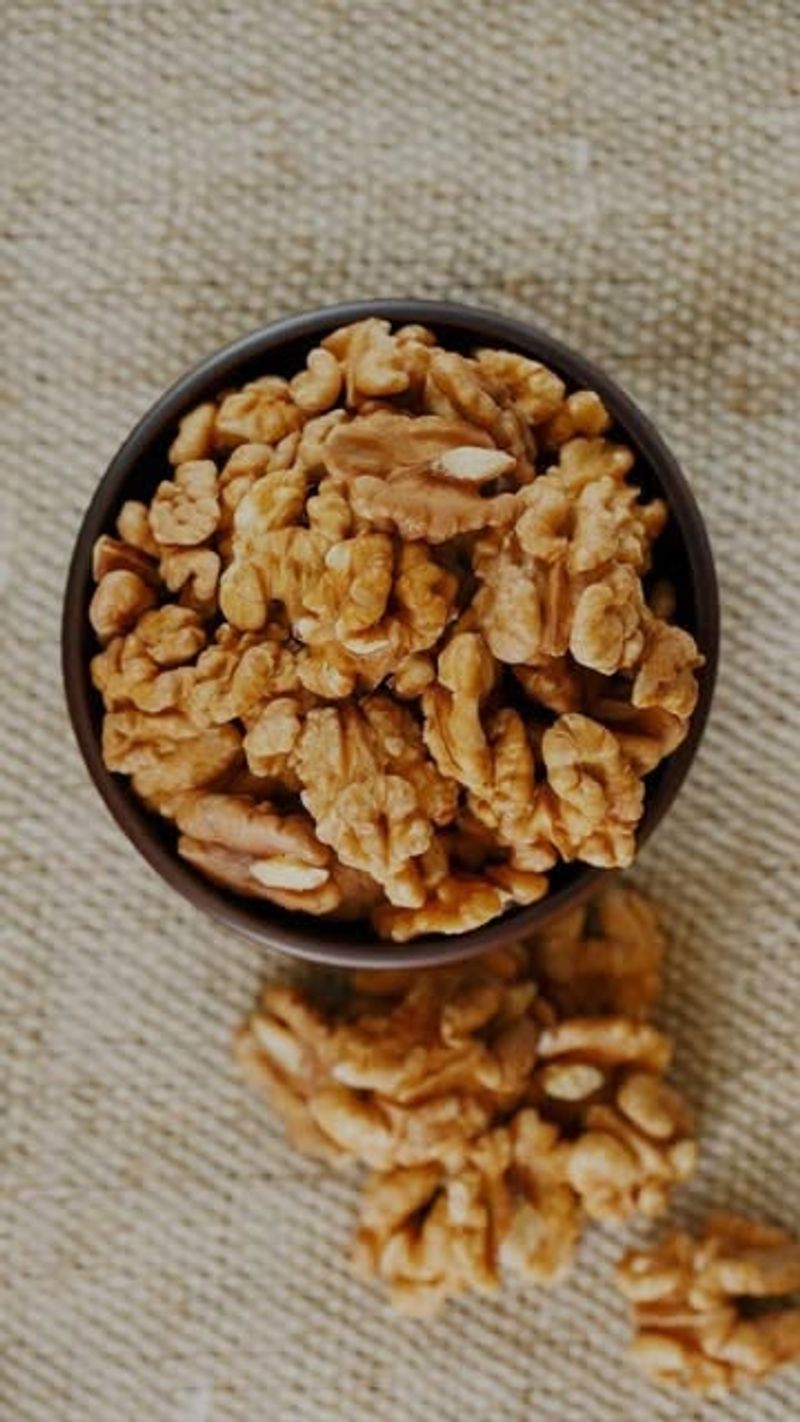
Walnuts are brain-shaped nuts known for their high omega-3 fatty acid content, which supports cognitive function and heart health. They are also rich in antioxidants, vitamins, and minerals, contributing to overall wellness.
Their slightly bitter taste pairs well with both sweet and savory dishes, making them versatile in cooking and baking. Enjoying walnuts as a snack or adding them to salads and desserts can enhance the flavor and nutritional value of your meals.
Including walnuts in your diet offers a crunchy way to boost your health.
14. Brown Rice

Brown rice is a whole grain known for its high fiber content, aiding in digestion and promoting satiety. It’s rich in essential nutrients like magnesium and B vitamins, supporting energy levels and metabolism.
Its nutty flavor and chewy texture make brown rice a satisfying base for many dishes, from stir-fries to grain bowls. Cooking it takes a bit longer than white rice, but the nutritional benefits are worth it.
Incorporating brown rice into your meals provides a hearty, nutritious foundation for a well-rounded diet.
15. Chia Seeds
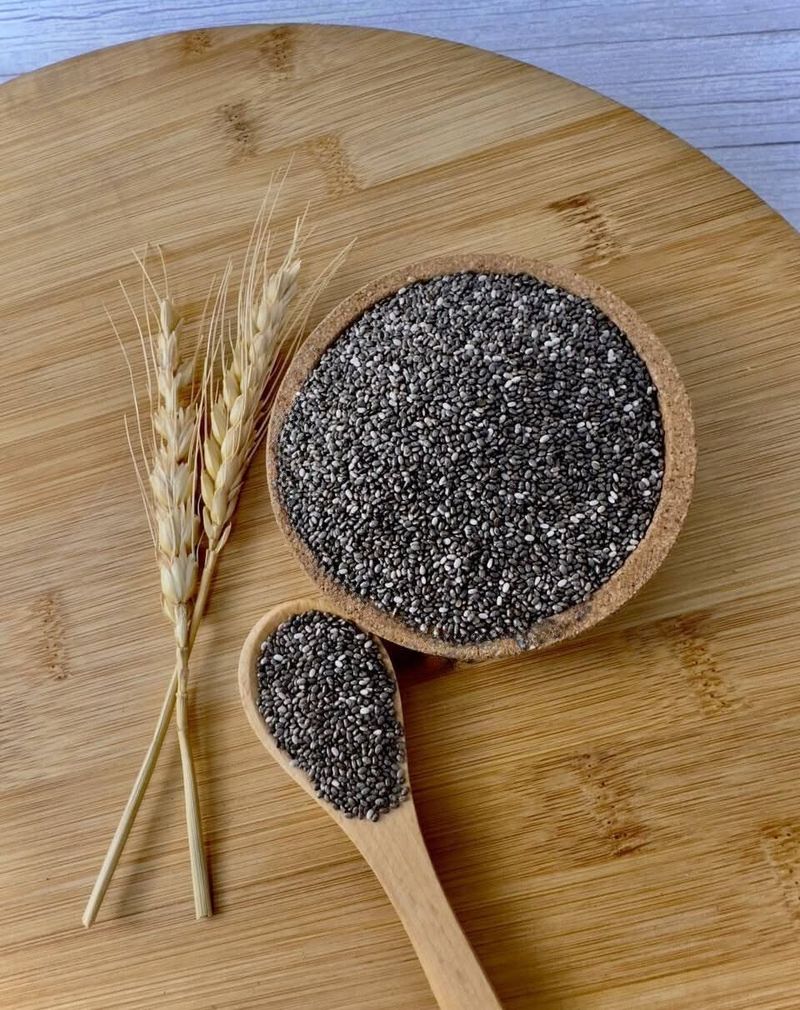
Chia seeds are tiny seeds packed with fiber, omega-3 fatty acids, and protein. They support heart health and promote hydration due to their ability to absorb liquid and form a gel-like consistency.
Their neutral flavor makes them easy to incorporate into various dishes, from smoothies to puddings. Soaking chia seeds enhances their texture, offering a delightful addition to your meals.
Including chia seeds in your diet provides a versatile, nutrient-rich option to boost fiber intake and overall wellness.
16. Tomatoes

Tomatoes are vibrant fruits rich in lycopene, an antioxidant known for its role in heart health and cancer prevention. They’re also a good source of vitamin C and potassium, supporting immune function and muscle health.
The versatility of tomatoes allows them to be used in salads, sauces, and cooked dishes, adding flavor and nutrition. Their juiciness and slight acidity complement a wide variety of ingredients.
Incorporating tomatoes into your meals can enhance both the taste and health benefits, offering a refreshing, nutritious choice.
17. Carrots

Carrots are crunchy root vegetables known for their high beta-carotene content, a precursor to vitamin A, which supports eye health and immune function. They’re also rich in fiber, promoting digestion and satiety.
Whether eaten raw, roasted, or steamed, carrots offer a sweet flavor that pairs well with various dishes. Their vibrant color and nutritional benefits make them a popular choice in salads and snacks.
Adding carrots to your diet provides a crunchy, healthful option to boost your intake of essential vitamins and minerals.
18. Chickpeas
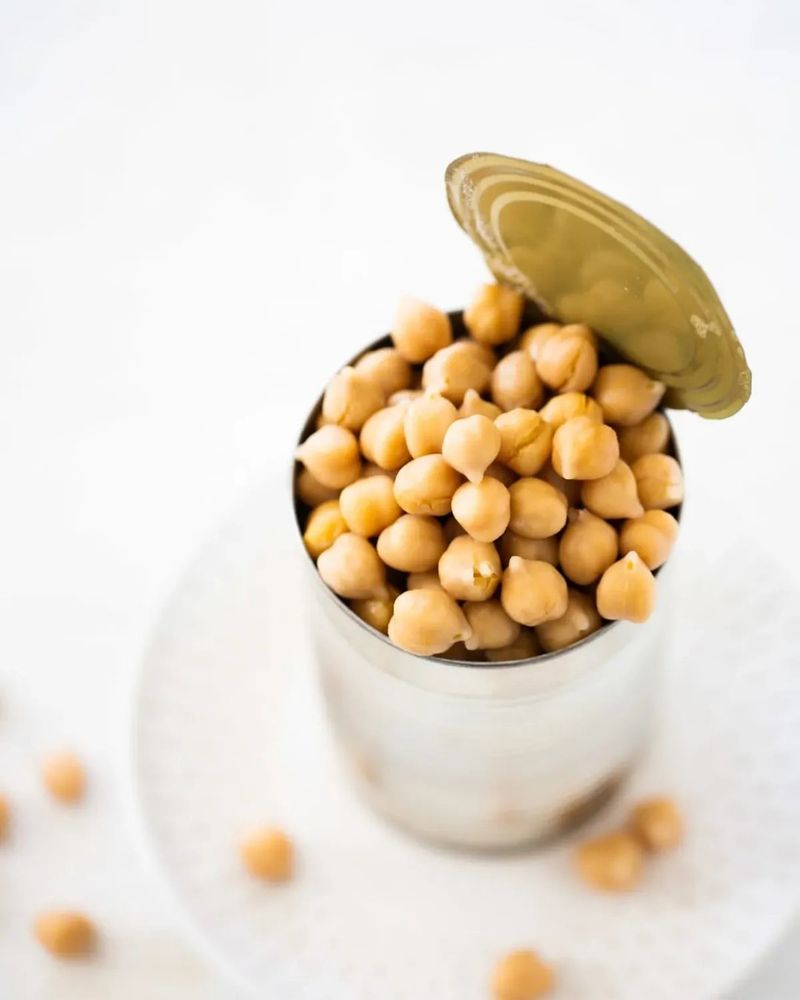
Chickpeas, also known as garbanzo beans, are legumes rich in protein, fiber, and essential minerals like iron and phosphorus. They support heart health and aid in digestion, making them a staple in plant-based diets.
Chickpeas have a mild, nutty flavor and can be used in various dishes, from hummus to salads and stews. Their versatility and nutritional profile make them a valuable addition to any meal.
Including chickpeas in your diet offers a nutritious, satisfying way to enhance your intake of protein and fiber.
19. Oranges

Oranges are juicy citrus fruits renowned for their high vitamin C content, boosting immune health and skin vitality. They’re also rich in fiber, benefiting digestion and promoting satiety.
The sweet, tangy flavor of oranges makes them a refreshing snack or addition to salads and desserts. Their natural juiciness and vibrant color add a lively element to meals.
Including oranges in your diet provides a delicious, vitamin-rich option to enhance your overall nutrition and enjoy a burst of flavor.
20. Kale

Kale is a leafy green vegetable celebrated for its high nutrient density, including vitamins A, C, and K, and antioxidants. It supports bone health, immunity, and inflammation reduction.
The slightly bitter flavor of kale can be balanced with sweet or tangy ingredients, making it perfect for salads and smoothies. Massaging kale leaves can soften their texture, enhancing their appeal in raw dishes.
Incorporating kale into your diet provides a nutrient-rich, flavorful option to boost your intake of essential vitamins and minerals.
21. Berries
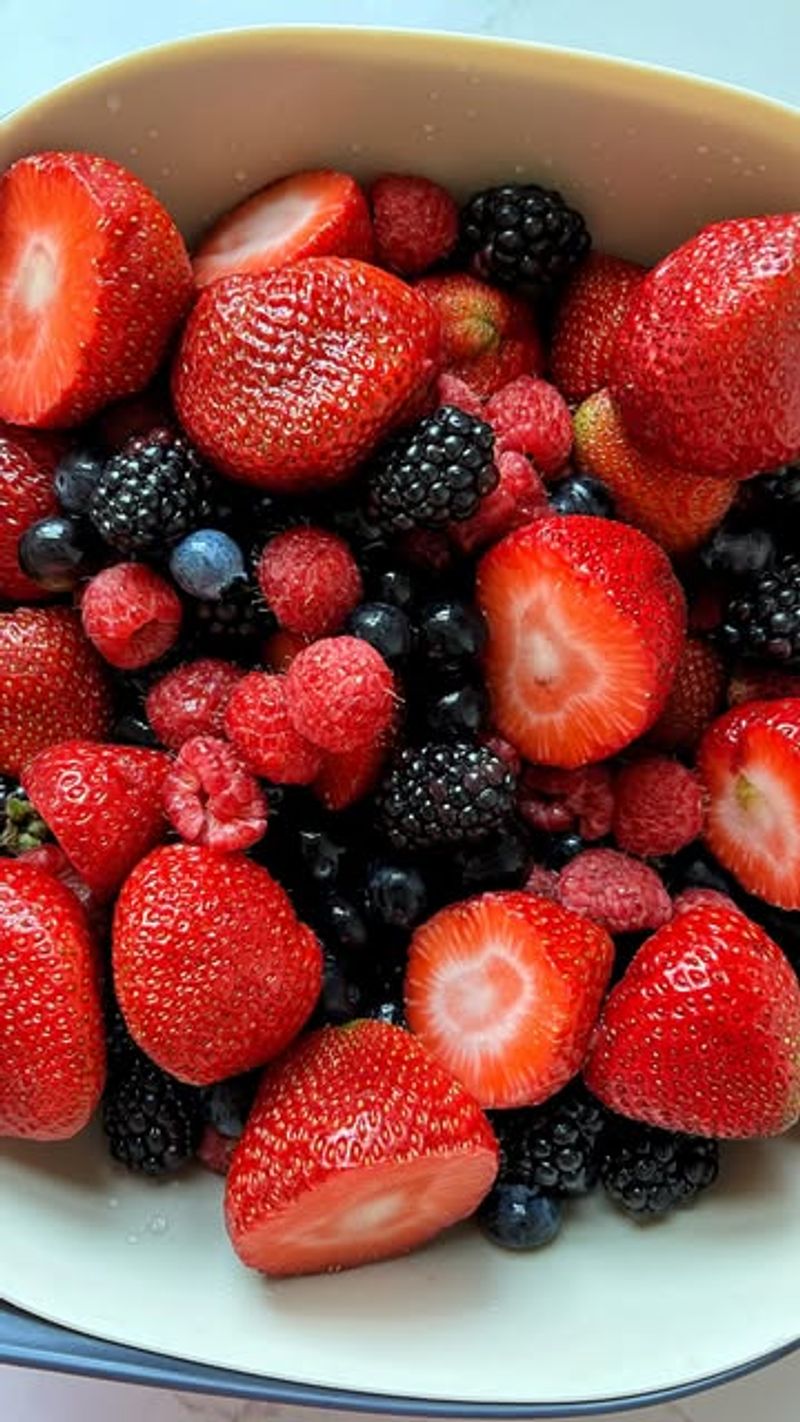
Berries, such as strawberries, raspberries, and blackberries, are small fruits rich in antioxidants, supporting heart health and reducing inflammation. They’re also a good source of vitamin C and fiber, aiding in digestion and immune function.
Their sweet and tangy flavors make berries a delightful addition to breakfast cereals, desserts, or as a standalone snack. The vibrant colors and juicy texture contribute to their appeal.
Including berries in your diet offers a refreshing, nutritious way to enjoy a burst of flavor and health benefits.
22. Bell Peppers

Bell peppers are colorful vegetables rich in vitamins A and C, enhancing immune function and skin health. They’re also a good source of fiber, supporting digestion and satiety.
Their sweet, crisp texture makes them a versatile addition to salads, stir-fries, and snacks. Roasting bell peppers brings out their natural sweetness, adding depth to dishes.
Including bell peppers in your meals provides a nutritious, flavorful option to enhance your intake of essential vitamins and minerals.
23. Dark Chocolate

Dark chocolate is a decadent treat packed with antioxidants and minerals like magnesium and iron. It supports heart health and cognitive function when consumed in moderation.
The rich, bittersweet flavor of dark chocolate makes it a satisfying dessert or snack. Pairing it with nuts or fruit enhances its nutritional profile. Choosing dark chocolate with minimal additives maximizes health benefits.
Including dark chocolate in your diet offers a pleasurable, healthful way to indulge your sweet tooth while enjoying its beneficial properties.
